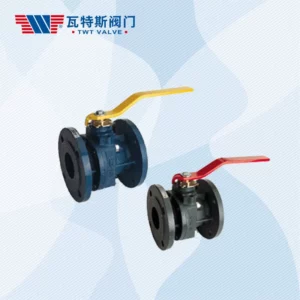Flange ball valves are widely used in industrial applications due to their reliability, durability, and ease of maintenance. However, like any other mechanical equipment, flange ball valves can experience unexpected problems that may cause additional work.
Here are some common causes of unexpected flange ball valve problems:
- Improper Installation: Improper installation of the flange ball valve can cause leaks and other issues that may require additional work. It is essential to ensure that the valve is installed correctly and that all connections are tight and secure.
- Wear and Tear: Over time, the internal components of the valve can wear out due to constant use, exposure to harsh conditions, or poor maintenance. This wear and tear can cause the valve to malfunction and require repair or replacement.
- Corrosion: Flange ball valves that are exposed to harsh environments or corrosive substances can develop corrosion, which can cause leaks and other issues. It is important to choose the right materials for the valve and to regularly inspect it for signs of corrosion.
- Damage: Flange ball valves can be damaged by impact or other physical forces, which can cause leaks and other issues. It is important to handle the valve carefully and to avoid exposing it to unnecessary risks.
In conclusion, unexpected flange ball valve problems can cause additional work and costs. To prevent these problems, it is important to install the valve correctly, regularly inspect and maintain it, choose the right materials for the valve, and handle it carefully. If you experience any unexpected problems with your flange ball valve, it is recommended to contact a professional for assistance.
Variation of Mechanical Properties of a Flange Ball Valve
The mechanical properties of a flange ball valve can vary depending on various factors such as the material used for construction, the design, China Flange Ball Valve supplier manufacturing process, and operating conditions.
Here are some examples of how these factors can affect the mechanical properties of a flange ball valve:
- Material: The material used for construction of a flange ball valve can affect its mechanical properties. For example, a valve made of stainless steel will have different strength and corrosion resistance properties than a valve made of cast iron.
- Design: The design of the valve, including the shape and thickness of the components, can affect its mechanical properties. For example, a valve with thicker walls and a larger diameter may be able to handle higher pressures than a valve with thinner walls and a smaller diameter.
- Manufacturing Process: The manufacturing process used to produce the valve can affect its mechanical properties. For example, a valve produced using a high-quality forging process may have better strength and fatigue resistance properties than a valve produced using a casting process.
- Operating Conditions: The operating conditions, such as pressure, temperature, and fluid type, can also affect the mechanical properties of a flange ball valve. For example, a valve operating under high pressure and temperature conditions may experience greater stress and strain than a valve operating under lower pressure and temperature conditions.
In summary, the mechanical properties of a flange ball valve can vary depending on the material, design, manufacturing process, and operating conditions. It is important to consider these factors when selecting a valve to ensure that it will meet the required performance specifications and provide reliable operation.
